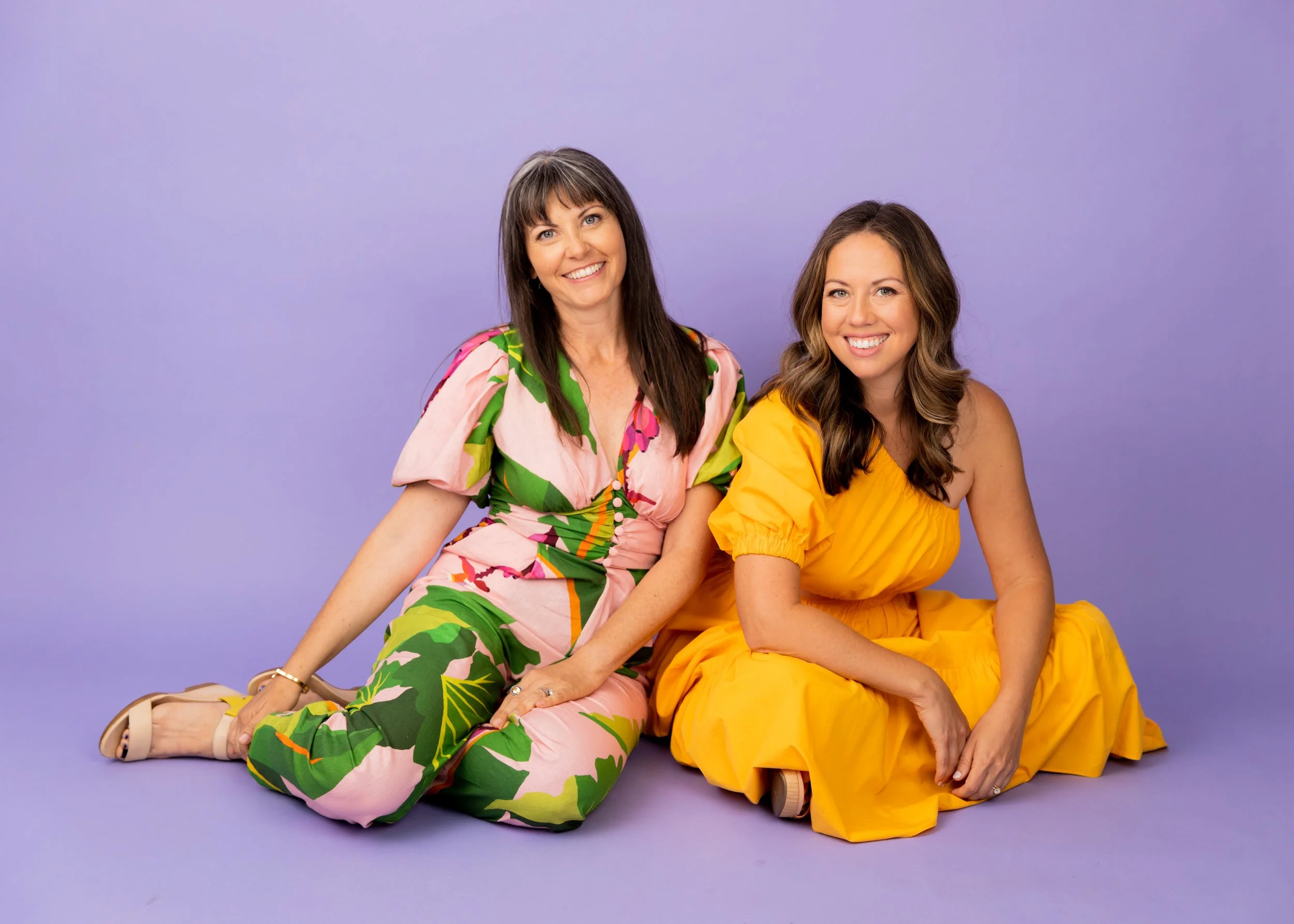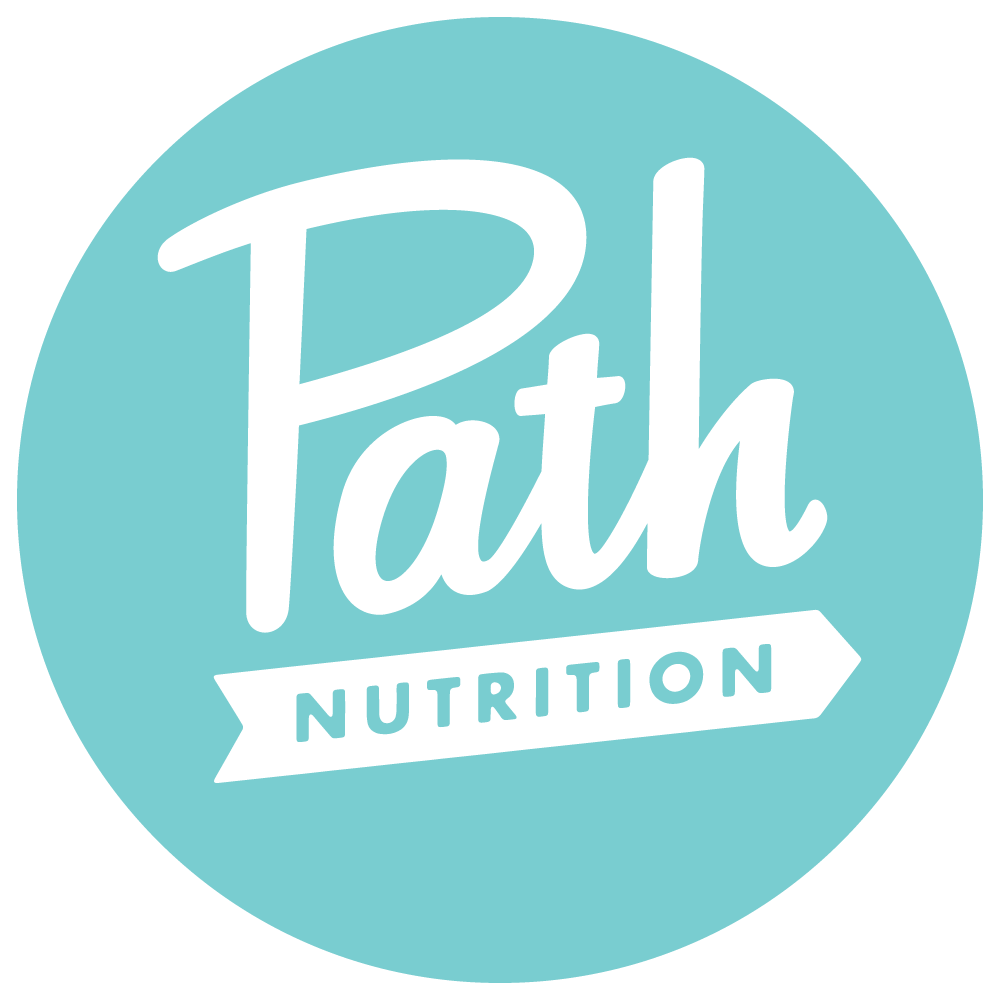What is Intuitive Eating?
Path Nutrition Explains Intuitive Eating
Despite the current buzz, intuitive eating was introduced in 1995. We became most familiar with it about 5 or 6 years ago when we were studying the psychology of eating and trying to bridge the gap as a coach between standard nutrition education and behavioral change. We were making food plans for people and they weren’t doing them or they would come into our office and break down in tears from sharing their stories and struggles with us and we knew there was something more we needed to know to really help our clients.
When you try to get results by only changing your circumstances, like changing diet with a meal plan, it almost never works long term. So what does? Well, many people come to Path Nutrition asking if intuitive eating is what they need to learn or maybe they “tried it” and feel let down because just like a diet, it didn’t do the trick. We’re going to break it down so you can decide.
Intuitive eating is a mind-body approach that is founded on ten principles created by Evelyn Tribole and Elyse Resch, two RDs. It’s main premise is offering unconditional permission to eat with body attunement. This was specifically important in working with Eating Disorder patients learning to trust themselves, heal their relationship with food as well as resolve disordered eating patterns, and aligning with their natural hunger. It was proven effective with these ED patients and so the principles of intuitive eating went more mainstream and that’s sort of how the whole undiet culture started.
Unfortunately, like many food modalities that offer up a way to support someone’s health related to food it has become a quick social media scroll message or a 1 minute read on a blog that has been watered down to a simple thing of just trust your body, eat what you want. But that leaves out so much of its greatness and fundamental principles.
It is great to see more intuitive eating messages, because we feel like that is the right direction, however, many people take that and use it as an excuse to eat in a f*ck it mentality, which is often not coming from a place of intuition or it perpetuates the fear around relaxing into our relationship with food because so many people don’t trust themselves around food.
What is Intuitive Eating?
There are ten principles of intuitive eating:
1. Rejecting diet mentality - We now know that diets don't work - there is data showing that most people regain lost weight when they diet, often because they are so extreme they aren't maintainable. We know that temporary efforts create temporary results not to mention physical, emotional and mental distress. We are fully on board with letting go of the diet mentality. In fact, that’s what we help our clients do!
2. Honor your hunger - This means eat when you are hungry. Stop when you are full. Our personal take on this is YES, do this AND there are some reasons to understand more about emotional hunger vs physical hunger. There are also reasons to explore how your physical hunger may be dysregulated from prior diet habits, hormones, medicine etc. It’s a little more complex, we think.
3. Make peace with food - 100% we agree and think food is our friend, never an enemy. There are no good or bad foods and we are not good or bad for eating food. This is really hard for people to understand because they know they can argue that cheetos are obviously not as good for you as broccoli. However we believe that doesn’t mean cheetos are “bad.” If all food is medicine then what is the “dose?”
4. Challenge food police - This means you challenge the status quo of diet culture. You learn to question everything. You might find ways to speak differently to friends and family in social situations. Of course, we love when clients feel bold enough to do so publicly but at a minimum, you learn how to think, “wait a minute? Is this really what I want to continue to believe about food?”
5. Learning to feel fullness - Again this one is nuanced for reasons discussed regarding hunger. Fullness is a spectrum and there are often deeper reasons why we are attached to feeling overfull or hungry etc.
6. Discovering real satisfaction - We do love this one. What does it really mean? This is different for each individual.
7. Honor emotions without using food - This is often where people go wrong in trying intuitive eating. They ignore this one altogether. Learning how to feel feelings without using food is a challenge and nobody should strive for perfection either. There are reasons why you may choose to eat a feeling time to time and that’s OK. Getting coached or trying nutrition therapy are great tools for integrating this principle. It’s nearly impossible to learn to do this without some help.
8. Respect your body - This is another principle that tends to go unnoticed. People tend to focus on the intuition part where your brain says eat candy so you eat an entire bag. That is not respecting your body. Intuitive eating doesn’t mean it always feels comfortable. Having some boundaries with food can be a positive thing when it comes from a place of respect and love. Food boundaries never feel good or empowered when they come from self-hatred.
9. Move with joy - We can’t agree more with this. No more slogging through extreme workouts you hate. Do you like walking? Dancing? Gardening? What are ways that you can move through the world for fun without so much emphasis on burning calories or getting thin? When you make this shift you actually stick to it long term and create so many more results like better overall health, happiness and mood.
10. Learn how food makes you feel (without seeking a perfect diet) - At the end of the day, only you know what food feels like in your body. Diet culture tells you to listen to what they have to offer. Exploring different ways of eating is wonderful however it is important to also learn how to become your own authority on this and find self-trust.
You are born with an innate understanding of most of these. Yet, somewhere along the way our parents, family, friends, and society sent us messages that disconnect us from this natural knowledge. Practicing these principles of intuitive eating can be super helpful in regaining that innate knowledge.
Intuitive Eating is NOT
Eating whatever you want at any given moment with complete disconnection or unconsciousness.
Yet another diet promising to make you thinner or happier.
A guaranteed answer for your problems with food or your body.
Giving up on yourself.
Our Spin on Intuitive Eating
We mainly offer that these principles are very important and we use them often with clients. However, there may be much more to each individual’s path. We also think it is important to consider other data, like lab work, or consider intangibles like personal life experiences. We don’t apply labels or dogma in our practice, at least very rarely. So, we probably wouldn’t be calling any of this intuitive eating. It’s just a way of being for us.
Diet mentality is a set of beliefs about food, how you eat, your body, nutrition, and more. You might be aware of it but you might not be. Creating a new belief system about food and your body takes time and practice. Some people find coaching to be super helpful and others may even need a more therapeutic approach.
The goal is for you to learn how to trust yourself and be your own authority and I like to think of coaching and therapy as training wheels in the process. We are not here to tell you what to do. We are here to guide you so you can finally break free from diet culture and feel good in your body and about yourself.


